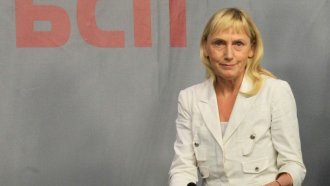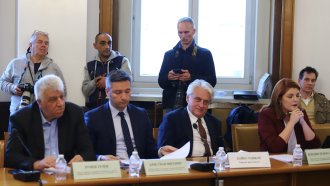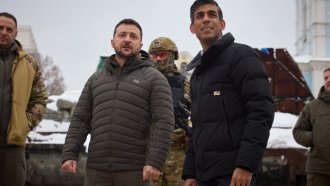Commentary:
Unhinged
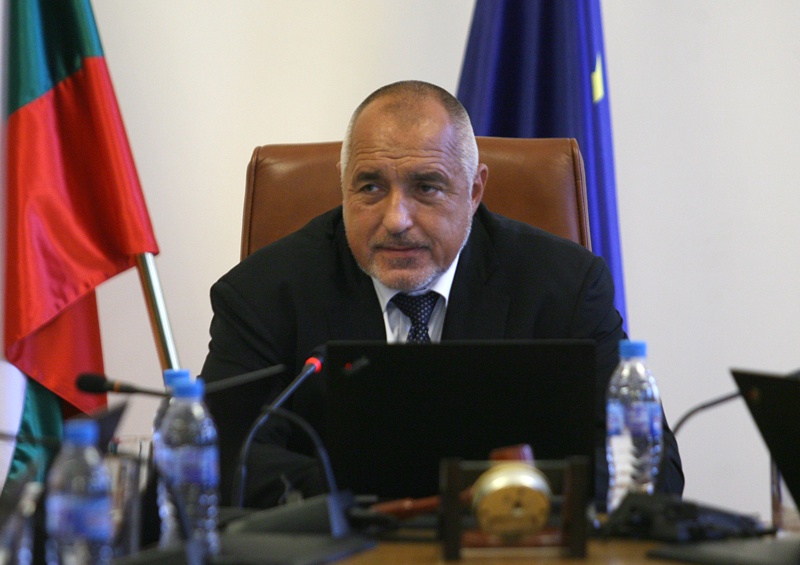
PM Boyko Borissov
GERB fully relies on the movement for Rights and Freedoms (DPS) to provide a quorum in Parliament, after the Bulgarian Socialist Party decided to boycott it a month and a half ago and now VOLYA thought it is time to make some headlines too and do the same. History has proven that this is hardly the only dependency linking DPS and GERB.
DPS is the most experienced political actor when it comes to holding all the trump cards in a Parliamentary session. One way or another Bulgaria has ended up in a situation where the government depends solely on DPS for its continuing existence. This is the normal political landscape, and even if a government begins otherwise, chances are, it will end up in this predicament. If this were chess, one party would always play the exact same sequence, all the possible opponents would be fully aware of the strategy, and still, always come to the same result. But that is only in part due to the opponents’ abilities. It has much more to do with the connections and dependencies, which are not visible on the board, and compel them to ultimately lose.
Last week, in an extraordinary move Parliament, passed a bill to pardon religious institutions’ outstanding debts to the state. The bill is not particular as to which religious institutions and PM Boyko Borissov almost kept a straight face explaining how this is a bill to all religious institutions, that is, it would equally benefit them. Putting aside the unanswerable conundrum as to why the state should provide (yet more) benefits to these institutions, the fact of the matter is that only one religious institution actually could benefit: The Grand Mufti, with its astonishing 8,2 million leva in unpaid taxes, social benefits and the like.
One very ironic point to be made here, unfortunately, is that in trying to persuade the public of the decision, Borissov spoke about keeping Bulgaria free of religious conflict: providing safe ground for free religious expression of all religions and – more importantly – a tolerant and open society, in which different religions coexist peacefully. All the while actually providing context and cause for just such a conflict or at the very least, some tension. Maybe even where there was none. Borissov was oblivious to the fact that pardoning 8,2 million leva in taxes and social security to a particular organization, which happens to be the largest religious minority in Bulgaria might ignite some hatred.
There was an immediate public backlash at the passing of this bill. Days later GERB announced it pulls out of the bill, again and it will revise it. Just as they did with the amendments to the Elections Act. GERB introduced controversial amendments to the Elections Act at the direction of DPS, which Parliament passed. The bill, which renders the provision for the preferential vote useless (a provision DPS has wanted to get rid of since its inception), got through the second reading in Parliament, but meanwhile, GERB promised to introduce yet another bill, which would restore the preference vote as it was before.
This government and the Parliament alike are in the midst of a grave crisis and the country is effectively not being governed at all as a result, and this crisis runs on two levels.
First, GERB has fully submitted to DPS’s blackmailing tactics. As GERB’s only objective is to keep the government running and remain in power, they are reactively ready to do anything out of fear of DPS leaving Parliament. Remain in power at any cost. This is their mantra, and it has spiraled to a point beyond the pathological over the past year or two. GERB apparently do not stop and think even for a minute as to the ridiculousness of DPS’s demands, nor that they would produce an enormous public backlash. And they seem to not even negotiate: the process seems to go one way: DPS directs, GERB complies.
But then comes the second stage: public outrage, which might be the only thing Borissov is more afraid of than losing the grips of power. Borissov and GERB fold within the week. They hectically start to pull out of bills or introduce amendments to cancel the most recent amendments from this week.
Then there’s Parliament itself. The largest opposition declared a boycott and is not taking part in Parliament’s session, which is great if GERB needs to pass through any crazy amendment. Then, as mentioned before, VOLYA, a small pro-Russian party, decided it wants some airtime and also left Parliament with ambiguous demands and reasoning, and then flipped and decided that it will not leave. The announcement to leave and the decision to go back are not even a full day apart.
It’s a game of quorum, which exists only because GERB are prepared to do anything to stay in power. This single goal has gradually eliminated any others if ever there were any. There is no real policy issue at hand and no strategic vision for solving any one real problem in the country, and understandably so: the dedication with which GERB swings from one decision to the opposite, is entirely chaotic, and also extreme. The only thing connecting the dots and providing sufficient explanation as to the motive and passion fueling it is unequivocal determination to remain at the head of the government.
To please the public, GERB introduced the amendments to the amendments of the Elections Act, and restore the previous rules. But it quickly winked at DPS: They are prepared to negotiate between the two readings. DPS hinted that they will not support the bill as it is now in the final vote. So, back to the negotiating table.
As for the Grand Mufti, GERB proposed to cancel the pardon but to negotiate a ten-year term payment of the outstanding debts.
In other news:
Key evidence in Ivancheva case fabricated

Dessislava Ivancheva (left) and Bilyana Petrova. (Archive)
The former mayor of Sofia’s district of Mladost, Dessislava Ivancheva, and her deputy, Bilyana Petrova, who are accused of taking a 70’000-euro bribe in exchange for a development permit, were arrested last April and released under house arrest in late December of last year. The arrest, the conditions in the jail, the treatment of the two women, and the extended amount of time they were kept in jail instead of under house arrest, made the head of the Supreme Court of Cassations launch a probe into the decisions of the court regarding the case. It found significant violations in the rulings, which may be key in finally letting the two women under house arrest. Meanwhile, the two announced earlier this year they file a lawsuit against the state for the gruesome living conditions in the jails: not the first time Bulgaria is taken to court for unbearable living conditions in Bulgaria’s jails and prisons, while officials, including the Minister of Justice, claim that the conditions meet EU standards.
There has been a lot of speculation about this case, and these mainly revolve around the notion that the Ivancheva and Petrova were set up because they got in the way of massive shady development interests of large construction companies, who have been known to bend the rules at the very least.
The prosecutors’ case till now has been rather thin: not a single witness, including the key witness in the case – the businessman, who claim was asked the bribe and provided the money for it – said they spoke directly with Ivancheva or Petrova about a bribe at all, let alone asked. He had only spoken to the third defendant in the case: Petko Dyulgerov, who Ivancheva and Petrova claim set them up.
Now another piece of important evidence might turn out to be useless – at least as far as proving Ivancheva and Petrova were corrupt: some writing in Ivancheva’s notebook. There are notes on a page of her notebook, which seem to indicate she wrote down the amount of the bribe. But an official examination of the evidence concluded that the handwriting on the page in question is not Ivancheva’s. Whom the handwriting belongs to, remains to be uncovered in a further investigation of the matter.
Meanwhile, the Ivancheva-Petrova case and their treatment by authorities was included in the most recent Human Rights Report by the U.S. Department of Justice, where it was cited as an example for human rights violations in Bulgarian detention centers.
Supreme Court rules doctor, convicted for the death of a patient, to keep his medical license
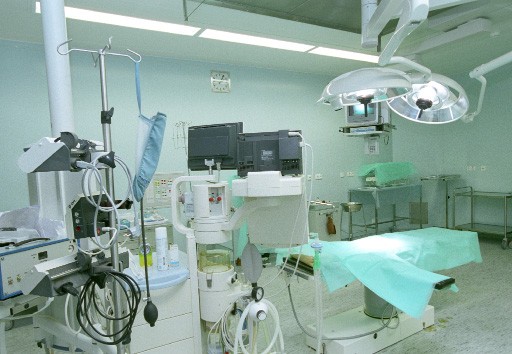
A doctor from Varna, who is convicted for causing the death of his patient will keep his medical license and will continue to practice medicine, the Supreme Court of Cassations ruled. According to the court, his medical license should not be revoked as the patient’s death is an isolated incident in his career and society would lose a valuable specialist in the field of his profession if he is banned from practicing medicine.
The patient in question is a 23-year-old woman, who died after Dimitar Gabrovski M.D. operated to remove her tonsils. The procedure is one of the most routine interventions in medical practice. But still, there was some risk of complications due to scar tissue in the patient’s throat, which may lead to bleeding. Gabrovski decided to perform the operation in a medical center, instead of a hospital, which is not equipped for blood transfusion. This is key in the ruling of the second instance (the first finds hip innocent), which finds the doctor guilty of the woman’s death.
After the operation to remove her tonsils, the patient was to remain the night under observation and let go the morning after the procedure. During the night the patient’s condition worsens and she begins feeling sick. She starts bleeding, her blood pressure drops drastically. Gabrovski is paged but only gives instructions to the attending via phone. He also orders the patient to be transferred to St. Anna hospital. The doctors attempt the transfer but she goes into a seizure and they cancel.
Gabrovski comes in at about 11:30 A.M. and performs a second operation to stop the bleeding in the throat. After the second intervention, the medical team is unable to wake the patient up from the general anesthesia. She is transferred to St. Anna hospital and into the ICU. Soon thereafter the doctors declared her dead.
The fact that Gabrovski decided to operate in a medical center instead of a hospital is a leading argument for the second instance’s ruling him guilty of the woman’s death. There was an increased risk of the patient bleeding and needing a blood transfusion, which the medical center was unable to provide.
The court sentenced him to 18 months conditional sentencing and suspension of his medical license for two years. He appeals the decision to the Supreme Court, which reaffirms everything from the previous ruling, including the judicial motives for the punishment. The Supreme Court only rejects the decision for the suspension of Gabrovski’s medical license.
The former head of national bank oversight not in a conflict of interest for emptying KTB account before collapse
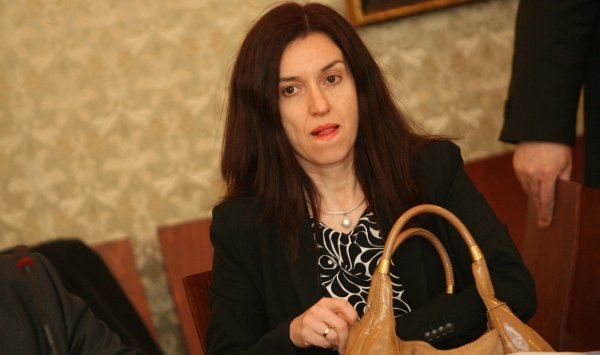
Nelly Kordovska
A court in Sofia ruled that the former head of the Bulgarian National Bank oversight committee, Nelly Kordovska, is not in a conflict of interest for emptying her personal accounts in the Corporate Commercial Bank (KTB) in the wake of the bank’s collapse.
The Anticorruption Commission filed a lawsuit against Kordovska arguing she used her public office and inside information for personal benefit: she managed to pull out her deposits in the last possible moment before the bank shut down.
The judge in the case, however, reckons that Kordovska’s reaction was only natural and has nothing to do with the fact that she had access to inside information of BNB. According to the judge, there was enough public information available at the time to yield such action. Moreover, this public information led thousands to withdraw their savings from KTB, and Kordovska was no different.
In other words, Kordovska could have made the same decision based just on what was known publicly about KTB’s situation. And even though she did have access to inside information confirming the imminent collapse of KTB, it cannot be said for certain that the inside information, in particular, was the reason she pulled her funds from KTB
The day before KTB was put under BNB supervision and one day after BNB began its inspection of KTB under Kordovska’s direction, she withdrew just under 65’000 euro from her personal account in KTB. Although this amount falls within the 100’000 euro, which are protected through a state guarantee, many people had to wait five months to receive their insured deposits back. This fact was not taken into account in the court’s decision.
Bulgaria is not prepared to counter Russian hybrid attacks: Tsvetan Tsvetanov
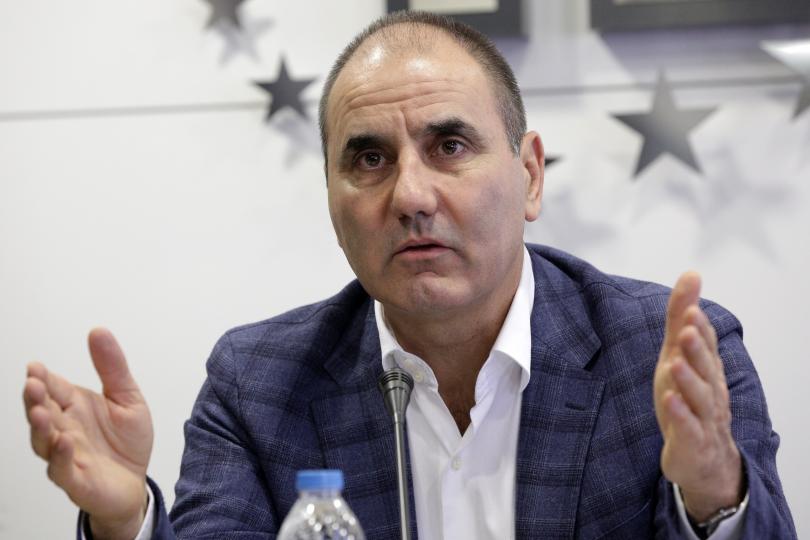
Tsvetan Tvetanov
The leader of GERB’s parliamentary group, Tsvetan Tsvetanov, and the second highest ranking member of its high management, admitted Bulgaria has no mechanisms to prevent or combat hybrid attacks and fake news coming from outside the EU.
He announced this during a conference for cybersecurity in the EU, just a few months from the European elections, due May.
“Our country is not prepared for these hybrid attacks, which are in some non-EU countries’ everyday play… Russia is the country, which is most often mentioned as one most likely to tamper in the election process of the European Parliament”, Tsvetanov said.
He pointed out that there are some European countries, which have even established special miniseries, dedicated to tackling misinformation.
“Unfortunately, our country did not develop such a mechanism, which could counter fake news.”
This Monday the head of the Directorate of the department for the fight against organized crime in the Ministry of Interior confirmed that the group behind the major hacker attack against key institutions on election day in 2015 in one Sofacy – Face Bears: a group closely associated with the Russian the armed forces intelligence agency – GRU.
GERB MP accidentally admits the Central Elections Commission is not independent
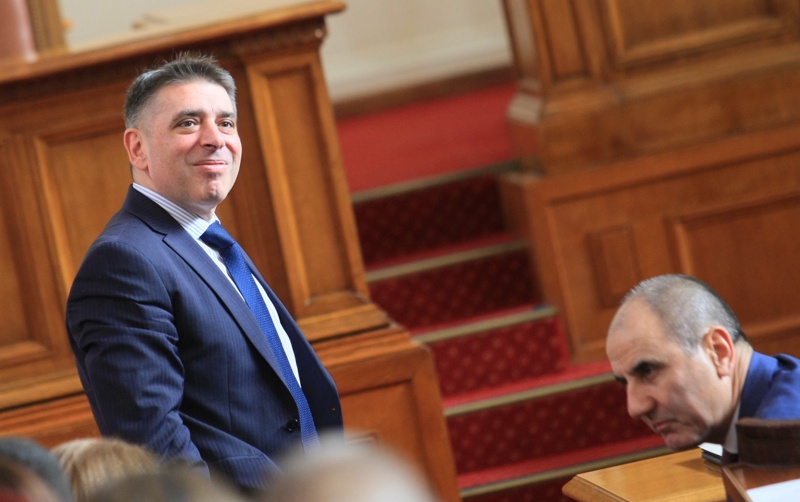
Danail Kirilov
According to the law, the Central Elections Commission is an independent body. But a statement made during the Parliamentary Justice Committee’s session by GERB MO Danail Kirilov suggests otherwise.
The agenda for this particular meeting was to address the current mandate of the commission, which ends on March 20 and hold hearings for the prospective new members.
Kirilov was apparently annoyed that non-parliamentary parties, which have European MPs have a right to apply for members of the Elections Commission. He attacked one of the candidates on the grounds that they would not be attached to any political party with European MPs in the next European Parliament.
“To which political party would you affiliate yourself if you don’t have a European MP? I mean, in terms of your principal voting stance?”
Which is a clear admission, at the very least, that GERB members vote in the Elections Commission under the direction of the party. Maybe realizing what Kirilov implied, he asked to withdraw the question, but the candidate insisted on answering.
“This question surprises me very much. I have every right to be nominated – in accordance to the law and procedural regulations, adopted by this commission.”, Ivaylo Ivcov of the since-collapsed Reform Block said.
State-owned TPP Maritza-Iztok 2 on the brink of insolvency

The state-owned TPP Maritza-Iztok 2 faces almost immanent insolvency if the European Commission does not approve for the Bulgarian Energy Holding to reform its outstanding debts. BEH owns all of the state energy companies, including TPP Maritza-Iztok 2.
According to preliminary data, the TPP closed 2018 with 330 million leva in loses and its debts are over 1,2 billion leva. Nearly a billion of these debts are to its owner, BEH.
Technically, BEH’s plea to the European Commission is to expand TPP Maritza-Iztok’s capital, which is essentially a form of state subsidy to the plant by reforming the 600 million-leva debt into capital.
According to the Executive Director of BEH, Petyo Ivanov, if The European Commission does not approve this proposal, the plant will have to initiate a procedure for insolvency as early as next year.
A big issue for the coal-based TPP is the increased prices for carbon emissions. Ivanov said that if TPP Maritza-Iztok 2 fails again to secure funds to cover the costs for its emissions for this year, BEH will step in and cover them. BEH has been covering these costs for TPP Maritza-Iztok 2 for the past three years.
Ключови думи
За честна и независима журналистика
Ще се радваме, ако ни подкрепите, за да може и занапред да разчитате на независима, професионална и честна информационно - аналитична медия.
 0 коментара
0 коментара
Екипът на Mediapool Ви уведомява, че администраторите на форума ще премахват всички мнения, съдържащи нецензурни квалификации, обиди на расова, етническа или верска основа.
Редакцията не носи отговорност за мненията, качени в Mediapool.bg от потребителите.
Коментирането под статии изисква потребителят да спазва правилата за участие във форумите на Mediapool.bg
Прочетете нашите правила за участие във форумите.
За да коментирате, трябва да влезете в профила си. Ако нямате профил, можете да се регистрирате.


